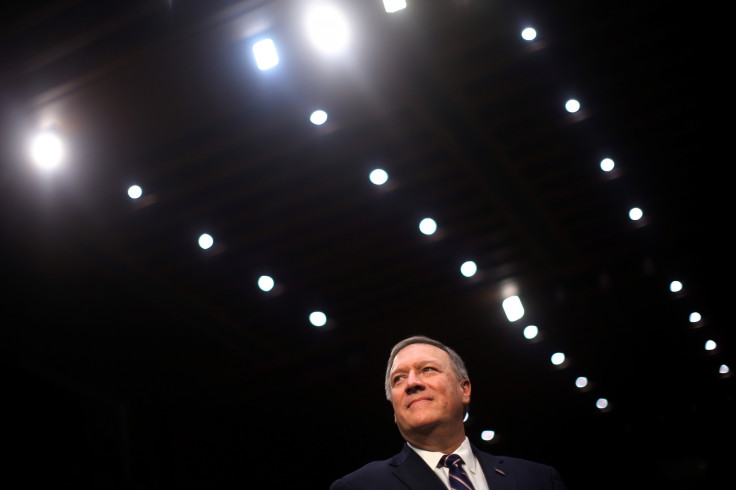CIA director nominee says he 'can't imagine' Trump would ask him to use torture
Combatting ISIS and following the threads of Russian cyber attacks among top priorities, says Mike Pompeo.

Kansas Congressman Mike Pompeo said he would not use torture, even if asked by the president, during his confirmation to become director of the Central Intelligence Agency in the Trump administration.
"I can't imagine that I would be asked that," Pompeo said, when asked by Senate Intelligence Committee member Democratic Senator Dianne Feinstein whether he would use torture if pressured by President-elect Donald Trump. "I'm deeply aware that any changes to that will come through Congress," he said during his testimony on 12 January.
"I voted for the change that put the army field manual in place," said Pompeo, referencing a 2015 vote to ban torture and adhere to the standards of war laid out in the US Army's field manual on iterrogation. "I'll always comply with the law," Pompeo said.
When asked what he thinks about waterboarding in June 2016, Trump said "I like it a lot" when asked about his stance on the torture technique used by the CIA following the September 11 attacks. Yet he seemed to walk back from that position in November after meeting with his defense secretary pick retired General James Mattis.
In his testimony Pompeo also laid out the priorities he would take as CIA director. He said "sophisticated adversaries like China and Russia" are taking advantage of the low barriers to entry in offensive cyber weapons. Cybersecurity, he said, would be one of his top concerns.
"I attended the meeting where the president-elect was briefed" on Russian hacking and propaganda influence operations against the US, he said. "It's pretty clear what took place," he said when asked about an intelligence report released last week that describes Russia's intent to influence the 2016 election. Russia's intent, Pompeo said, was "to hack and have an impact on American democracy."
He indicated he would continue to pursue leads in Russia's "active measures" against the United States and promised to "continue to pursue foreign intelligence with vigour, no matter where the facts lead." Pompeo said later that he "not seen that" the CIA has become politicised as Trump has suggested multiple times.
In the four priorities he laid out for the CIA, Pompeo said he also wanted to target the proliferation of chemical and biological weapons, whistleblowers, and budgetary constraints.
The committee, however, had tough questions for him about an opinion piece he wrote in January 2016 published by the Wall Street Journal, in which he called for widening mass surveillance and the law as it now stands.
Pompeo said that he would "start with legal boundaries that exist today." But he added that he still believes the 2015 US Freedom Act, which set limits on the bulk collection of data on US citizens by intelligence agencies, is inadequate. "I still continue to stand behind the commitment to keep Americans safe," he said.
© Copyright IBTimes 2025. All rights reserved.






















